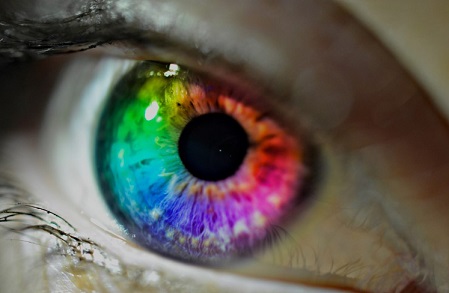Ophthalmologists Warn That COVID-19 Can Cause Dyschromatopsia And Changes In Visual Contrast Sensitivity
Nikhil Prasad Fact checked by:Thailand Medical News Team May 09, 2024 10 months, 3 weeks, 4 days, 10 hours, 16 minutes ago
COVID-19 News: The COVID-19 pandemic, with its unprecedented scale and impact on global health, has led researchers to explore various aspects of the virus's effects on different bodily systems. Among these investigations, ophthalmologists have taken a keen interest in understanding how COVID-19 may influence visual functions, particularly in terms of color perception and contrast sensitivity. Dyschromatopsia, which refers to color vision deficiencies, and changes in visual contrast sensitivity (VCS) have emerged as focal points for research due to their potential associations with COVID-19.
 COVID-19 Can Cause Dyschromatopsia And Changes In Visual Contrast Sensitivity
Understanding Dyschromatopsia
COVID-19 Can Cause Dyschromatopsia And Changes In Visual Contrast Sensitivity
Understanding Dyschromatopsia
Dyschromatopsia, commonly known as color blindness, is a condition characterized by the inability or difficulty in perceiving colors accurately. This impairment can range from partial blindness to specific colors to a complete inability to recognize colors altogether, known as achromatopsia. It's noteworthy that dyschromatopsia can either be congenital (inherited) or acquired, and statistically, it tends to affect males more frequently than females.
In the context of COVID-19, researchers have observed cases where individuals experience dyschromatopsia as a result of the infection. This intriguing observation has prompted in-depth investigations into how the virus may directly or indirectly impact the visual system, potentially leading to color perception abnormalities.
The Collaborative Study Approach
A collaborative effort involving researchers from esteemed institutions such as the VCSG Government Institute of Medical Science and Research in Uttarakhand, India, the Sue Anschutz Rodgers Eye Center in Colorado, USA, McMaster University in Ontario, Canada, and Al Dhannah Hospital in the UAE was initiated to delve into this phenomenon. The study that is covered in this
COVID-19 News report adopted a prospective case-control design aimed at evaluating alterations in psycho-physical tests related to visual functions, specifically focusing on contrast sensitivity (CS) and hue discrimination (total estimation score, TES), among COVID-19 patients.
Methodology and Findings
The study employed innovative methods such as a mobile application called "Smart Optometry" and utilized X-Rite's free online version of the Farnsworth-Munsell 100 hue test. Rigorous inclusion criteria, including stringent visual acuity standards, were applied to ensure the accuracy and reliability of the results while minimizing potential confounding factors.
The results of the study yielded intriguing insights. Significant differences were noted in TES between COVID-19 patients and the control group, indicating alterations in color perception among the infected individuals. However, initial differences observed in contrast sensitivity (CS) were not found to be significant after adjusting for age, suggesting a nuanced relationship between COVID-19 and visual con
trast perception.
Qualitative Analysis and Implications
Qualitative analysis of the data revealed a prevalence of S-cone mediated deficiencies over those affecting M-L cone mediated mechanisms among COVID-19 patients. This finding holds significance as it provides clues about the specific cone systems impacted by the virus, shedding light on the underlying mechanisms of dyschromatopsia associated with COVID-19.
Furthermore, the study highlighted a subset of COVID-19 patients exhibiting a combination of sensory features, including anosmia, loss of taste, and dyschromatopsia. This observation underscores the interconnectedness of sensory impairments that may arise in the context of COVID-19 infection, warranting further investigation into the broader neurological implications of the virus.
Discussion and Future Directions
The discussion surrounding the study's findings delved into the intricacies of acquired color defects versus congenital ones, considering factors such as age, sex, and the specific cone systems affected. Moreover, the study raised questions about the reliability of testing methods such as the Smart Optometry app compared to traditional measures like the Pelli-Robson test, emphasizing the need for standardized and validated assessment tools in clinical practice.
Conclusion
In conclusion, the collaborative study represents a significant step forward in understanding the ocular manifestations of COVID-19, particularly in relation to dyschromatopsia and contrast sensitivity changes. The findings underscore the importance of comprehensive visual assessments in COVID-19 patients and pave the way for further research into the neurological impact of the virus on sensory functions. As the scientific community continues to unravel the complexities of COVID-19, insights from studies like these contribute valuable knowledge to inform clinical practice and improve patient outcomes.
The study findings were published in the peer reviewed Indian Journal of Ophthalmology.
https://journals.lww.com/ijo/fulltext/2024/72050/dyschromatopsia_and_contrast_sensitivity_changes.12.aspx
For the latest
COVID-19 News, keep on logging to Thailand Medical News
